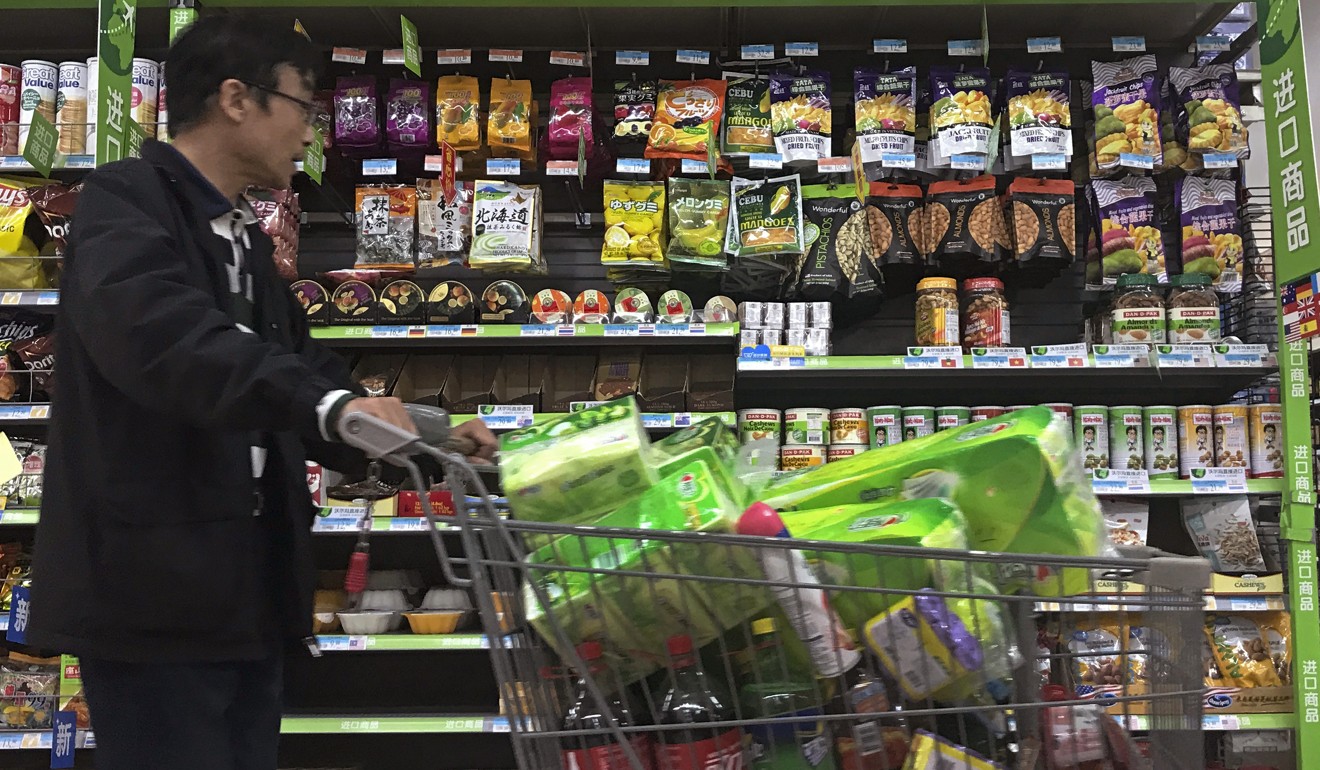
Hong Kong will not be a ‘voiceless victim’ in US-China trade war, top US envoy to city says
US Consul General Kurt Tong addressed fears that recent friction between two world superpowers could have an effect on Hong Kong
The top US envoy to Hong Kong has sought to ease fears that the city could become a “voiceless victim” in the looming trade war between the US and China, in which Washington has already shown a “yellow card” to Beijing.
US Consul General Kurt Tong described Hong Kong as “visible proof” that an economy could stay competitive while keeping its market open and free, saying the city had a positive role to play by using its “demonstration power” to show China how this worked.
Tong’s comments were made in a lunch speech on Tuesday at the Foreign Correspondents’ Club, where he talked about the recent trade friction between the US and China.
The two countries have issued warnings about an escalation of hostilities.
In his speech, Tong stressed that the US valued free, fair, and open trade but accused China of adopting “market-distorting policies and practices”.

He expressed worry that “China’s recent policies may be based on the false premise that it was central control of the economy that got China to this point”.
“Americans believe that it was not central planning, but rather China’s emerging pro-market and pro-investment policies, supplemented by access to the largest free markets in the world, that helped to write China’s impressive growth story,” Tong said.
Tong was posted to Hong Kong in 2016. He had served as the principal deputy assistant secretary for the Bureau of Economic and Business Affairs at the US State Department, and also the US ambassador for Asia-Pacific Economic Co-operation (Apec).
He said Washington’s recent moves to press Beijing to “raise its game on reform and opening” were “well-grounded” and “overdue”.
“China has drawn a deserved yellow card. Yellow cards are an opportunity for a player to change their style of play before someone gets hurt
“We do not want the Chinese economy to fail. That would be terrible for the United States.”
He said he appreciated the emergence of “a degree of nervousness” in Hong Kong.
The city’s commerce minister Edward Yau Tang-wah had expressed fears of collateral damage to the Hong Kong economy and said Hong Kong would “fight for its rights” in the event of discriminatory trade practices being implemented against it.
What way out for Hong Kong in US-China trade war?
The US is Hong Kong’s largest trading partner beyond mainland China. Two-way trade in goods and services amounted to about US$70 billion a year. And about 9 per cent of China’s exports to the US and 7 per cent of China’s imports from the US passed through Hong Kong.
In his speech, Tong said he had heard of worries that Hong Kong could become a “voiceless victim”, sandwiched between US-China trade friction.
But he said: “I do not expect that to happen. In fact, I think that the current situation presents a real opportunity for Hong Kong to demonstrate its lasting value, as a transformative portal linking China and the rest of the world economy.”
‘Belt and Road’ countries will benefit most in the event of any China-US trade war
“Hong Kong, in fact, is the visible proof that an economy can be part of China, but also be consistent with global best practices,” said Tong. “Hong Kong is competitive precisely because it is free.”
“I think that Hong Kong has an opportunity to proactively use its autonomy, to further strengthen its impressive economic competitiveness, as well as its inherent value proposition in the eyes of foreign partners,” said Tong.

